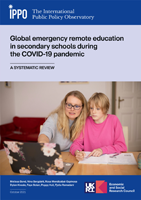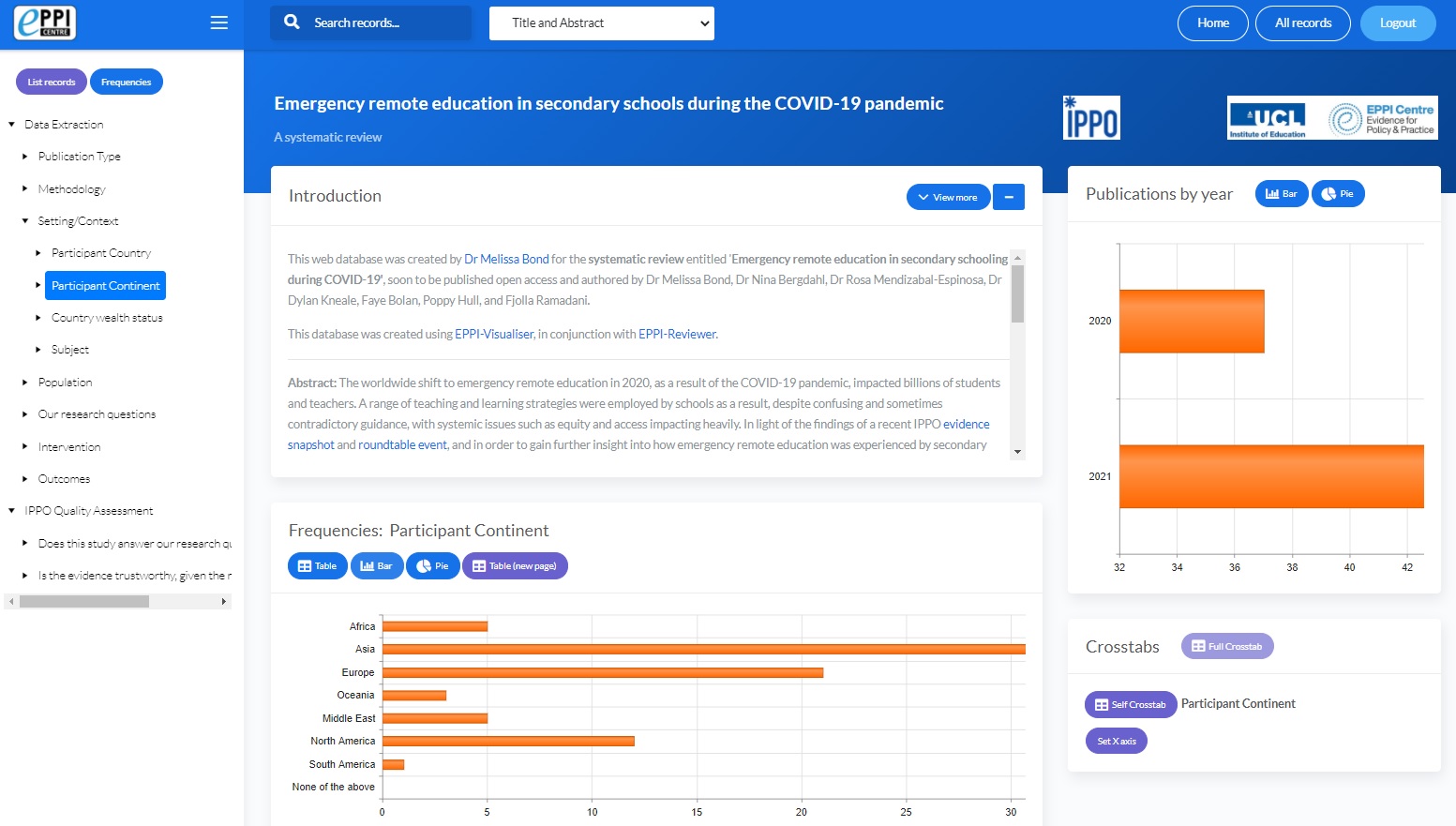Dr Melissa Bond (UCL), Dr Nina Bergdahl (Stockholm University), Dr Rosa Mendizabal-Espinosa (UCL), Dr Dylan Kneale (UCL), Faye Bolan (UCL), Poppy Hull (UCL) and Fjolla Ramadani (UCL)
 |
As a result of the unprecedented impact that the COVID-19 pandemic has had on education around the world, EPPI Centre team Dr Melissa Bond, Dr Nina Bergdahl, Dr Rosa Mendizabal-Espinosa, Dr Dylan Kneale, Faye Bolan, Poppy Hull and Fjolla Ramadani conducted a systematic review, identifying and synthesising 81 primary empirical studies, focused on teaching and learning in secondary schools during the pandemic. The report was published on 20th October 2021 and can be accessed here. |
Click here to be taken to an open access database of the coding in the review.

Emergency remote education in secondary schooling during the COVID-19 pandemic: A systematic review
Abstract
The worldwide shift to emergency remote education in 2020, as a result of the COVID-19 pandemic, impacted billions of students and teachers. A range of teaching and learning strategies were employed by schools as a result, despite confusing and sometimes contradictory guidance, with systemic issues such as equity and access impacting heavily. In light of the findings of a recent IPPO evidence snapshot and roundtable event, and in order to gain further insight into how emergency remote education was experienced by secondary school students, parents and educators, a systematic review was conducted, that collates and synthesises 81 primary empirical studies. Preliminary findings reveal that self-regulation and understanding were the most frequent indicators of engagement, with assessment tools, learning management systems with collaborative tools, live synchronous lessons with peer and teacher interaction, and teacher-made videos considered particularly engaging. Social isolation was the most frequent indicator of disengagement, with poor attendance in live lessons and limited opportunities to seek help particular challenges. 21 different types of online assessment tools were identified, with online quizzes and formative online feedback the most frequently used. Live marking or recorded feedback and assessment were particularly beneficial, as providing feedback during live lessons was sometimes challenging. Peer collaboration was heightened through peer assessment, inquiry-based group work, and experiments, with collaborative software and combining multiple applications particularly helpful. Parental involvement and support contributed to student learning, although issues of equity impacted the extent to which they could engage with their children's learning, alongside gaps in family content knowledge and technological skills. Implications for online and blended learning going forward are provided.
Research Questions
In order to help inform policy makers, secondary institutions, educators and researchers, the questions this review seeks to answer are:
- In what ways did emergency remote education affect motivation and engagement in secondary students?
- How did research report on emerging online assessment practices in secondary schooling during the pandemic?
- Are new approaches to peer collaboration emerging and what does this suggest?
- How did online learning in secondary schools affect parent engagement?
- What emerging uses of online and blended learning approaches in secondary schooling could continue to be implemented going forward?
Interactive evidence gap maps - More coming soon
Click on any image below, to be taken to that interactive evidence gap map. From there, you can explore the studies within this review, as well as download a RIS file of all of the items.
Click Filters in the top left to change the map style -: